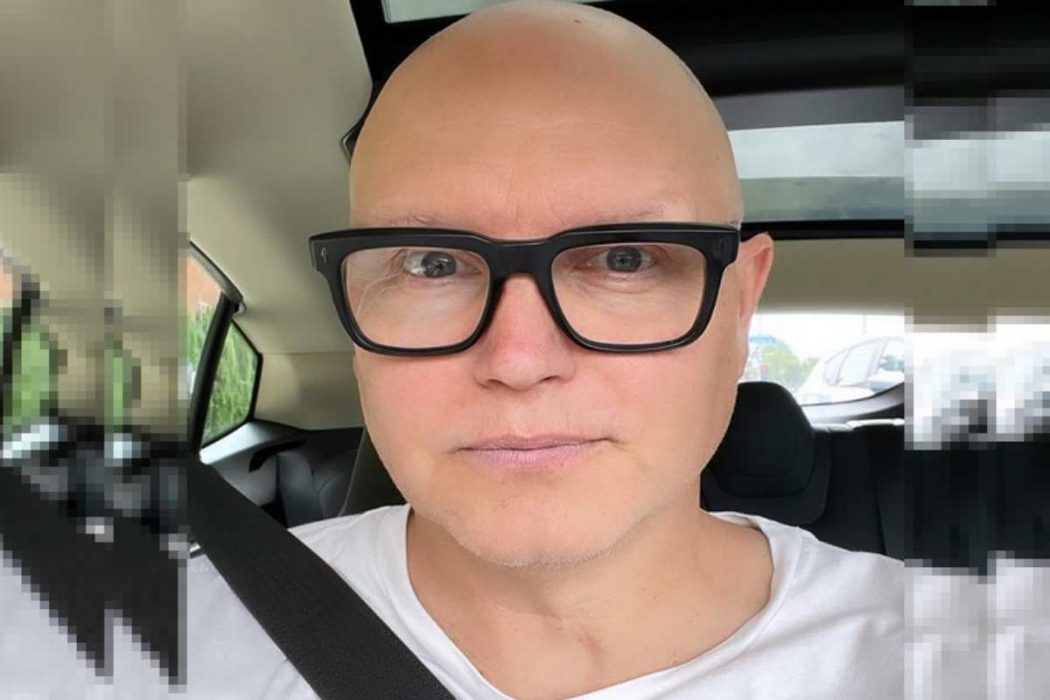No products in the cart.
Music
What Cancer Did Mark Hoppus Have?
Mark Hoppus, the lead singer of the renowned band Blink-182, has garnered significant attention in the music community and the public eye as he has openly shared his journey in battling cancer. The disease he faced was a stage 4 diffuse large B-cell lymphoma (DLBCL) – a highly aggressive form of blood cancer that can aggressively invade the body, where lymphocytes become abnormal and uncontrollable.
Understanding Diffuse Large B-cell Lymphoma (DLBCL)

DLBCL is one of the most common types of non-Hodgkin lymphoma, a group of cancers that originate in the lymphatic system. With stage 4 diagnosis, it means the disease has spread extensively throughout different parts of the body, making treatment more challenging but still potentially curable if detected early and treated promptly.
The daunting nature of DLBCL lies not only in its rapid progression but also in the way patients grapple with the daily pain, physical, and emotional challenges it presents.
Symptoms and Diagnosis of DLBCL
/mark-hoppus-1-05023d14d11a45eba1bb56eddcc23b04.jpg)
DLBCL often presents with sudden onset of symptoms, including:
- Painless swelling of lymph nodes in the neck, armpits, or groin
- Fever
- Night sweats
- Unexplained weight loss
- Fatigue
To diagnose DLBCL, doctors typically conduct a series of tests, including:
- Physical examination
- Blood tests
- Imaging scans (such as CT, PET, or MRI scans)
- Lymph node biopsy
Early detection and accurate diagnosis are crucial, as DLBCL is an aggressive form of cancer that requires prompt and comprehensive treatment.
Treatment Approaches for DLBCL
The standard treatment for DLBCL often involves a combination of chemotherapy, immunotherapy, and sometimes targeted radiation therapy or stem cell transplantation. The specific treatment plan depends on factors such as the stage of the disease, the patient’s overall health, and any other underlying conditions.
Chemotherapy regimens, such as the widely used R-CHOP (rituximab, cyclophosphamide, doxorubicin, vincristine, and prednisone), aim to destroy the cancerous cells and induce remission. Immunotherapy, using monoclonal antibodies like rituximab, helps the immune system recognize and attack the lymphoma cells.
In cases where the cancer has spread extensively or has relapsed, more intensive treatments, such as high-dose chemotherapy followed by stem cell transplantation, may be necessary.
Mark Hoppus’ Journey with Cancer
/mark-hoppus-1-ba5a5e0436a14da7b9f3ba83ca23ab0a.jpg)
After receiving his DLBCL diagnosis in April 2021, Hoppus made the courageous decision to share his story with the world, inspiring many others who are battling similar illnesses.
Facing the Diagnosis
Initially, Hoppus admitted to feeling a sense of impending doom, as if something tragic was about to happen. However, with the unwavering support of his family, friends, and fans, he was able to overcome the fear and confront the challenge head-on.
“At first, it felt like ‘I’m going to die,'” Hoppus said. “It was really dark, and I had a lot of friends and family tell me that it was going to be fine, but I had a lot of people checks in on me and say, ‘Hey, how are you doing?’ It really made a difference.”
The Treatment Process
Hoppus underwent an intense course of chemotherapy, which he described as both physically and emotionally taxing. The side effects of the treatment, including hair loss, nausea, and fatigue, took a toll on his well-being, but he remained steadfast in his determination to beat the disease.
“The chemo, they’re putting poison in you to kill the bad stuff, but it kills good stuff too,” Hoppus shared. “I felt like absolute dog shit. I couldn’t get off the couch. I couldn’t do anything.”
Throughout his treatment, Hoppus continued to document his journey, sharing updates and insights with his followers. This transparent approach not only helped him process his emotions but also served as a source of inspiration and support for others facing similar challenges.
The Road to Recovery
After undergoing several rounds of chemotherapy, Hoppus received the news that he was in remission, a testament to his resilience and the effectiveness of the treatment. This milestone was celebrated not only by Hoppus but also by his Blink-182 bandmates and their dedicated fan base.
“It’s been a rollercoaster of emotions,” Hoppus acknowledged. “But I’m feeling really good. I’m taking it day by day. I’m doing everything the doctors tell me to do, and I’m feeling really positive about the future.”
The Impact on Blink-182 and Music

Hoppus’ cancer diagnosis had a profound impact on the dynamics of Blink-182, pushing the band to confront their past tensions and mend their relationships.
Renewed Appreciation for Collaboration
The uncertainty and challenges faced during this period served as a catalyst for the band members to come together, recognizing the value of their collaborative efforts and the importance of supporting one another.
“We’ve all had our ups and downs, and I think that’s just the nature of a band that’s been around for 30 years,” Hoppus acknowledged. “But this experience has really brought us closer together. We’ve been able to put aside our differences and focus on what’s really important.”
The Healing Power of Music
For Hoppus and his Blink-182 bandmates, music became a source of solace and strength during this turbulent time. As they navigated the uncertainties of the future, the creative process and the act of performing provided a much-needed emotional outlet and a sense of purpose.
“Music has always been a healing force in my life, and it’s been an incredibly important part of my recovery,” Hoppus shared. “When I’m playing, I feel a sense of freedom and joy that I can’t find anywhere else.”
The Lessons Learned

Mark Hoppus’ journey with cancer has taught us valuable lessons about the power of human resilience, the importance of connection, and the transformative potential of facing adversity.
Embracing Vulnerability and Finding Strength
Hoppus’ willingness to openly share his story has been a testament to the courage and vulnerability that can emerge in the face of life-altering challenges. By confronting his fears and uncertainties, he has not only found personal strength but has also inspired countless others to do the same.
“It’s been a humbling experience, but it’s also been an opportunity to really reflect on what’s important in life,” Hoppus said. “I’ve learned that the strength to overcome comes not just from ourselves, but from the love and support of the people around us.”
The Transformative Power of Adversity
Hoppus’ journey has demonstrated that cancer, while an undoubtedly devastating experience, can also serve as a catalyst for personal growth and a deeper appreciation for life. By embracing the challenges and finding ways to navigate them, individuals can uncover new depths within themselves and cultivate a renewed sense of purpose.
“This experience has changed me in ways I never could have imagined,” Hoppus acknowledged. “It’s forced me to confront my own mortality and to really think about what I want to do with the time I have left. And in doing so, I’ve discovered a newfound sense of gratitude and appreciation for the people and things that matter most.”
Mark Hoppus’ journey with diffuse large B-cell lymphoma has been a powerful testament to the resilience of the human spirit and the transformative potential of facing adversity. Through his openness, courage, and unwavering determination, he has not only overcome his own personal challenges but has also inspired countless others who are facing similar battles.
Hoppus’ story serves as a reminder that even in the darkest of times, hope, love, and the support of those around us can be the catalyst for profound personal growth and healing. By embracing vulnerability, finding strength in community, and recognizing the value of the present moment, we can all learn to navigate the challenges life presents and emerge stronger, more resilient, and more deeply connected to what truly matters.
